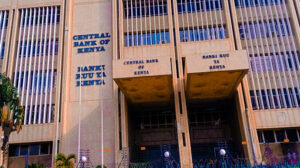The Energy and Petroleum Regulatory Authority (EPRA) has once again burdened Kenyans by increasing electricity prices, effective December 2024.
Domestic consumers using more than 100 kWh per month will now pay Sh29.92 per kWh, up from Sh28.57, following the introduction of a Sh1.35 per kWh water levy.
This new charge, designed to support the Water Resources Management Authority (WARMA), is part of a broader strategy to fund energy sector agencies, but it comes at a significant cost to consumers.
The water levy, which is intended to improve water catchment areas crucial for hydropower generation, has been criticized for adding another layer of expense to an already inflated power bill.
Kenyan households already face multiple charges per unit of electricity, including taxes, fuel costs, and foreign exchange adjustments.
The cumulative effect has made electricity increasingly unaffordable for many, exacerbating the financial strain on families already grappling with high living costs.
The steep increase comes amid public outrage over EPRA’s recent tariff reviews that have significantly raised electricity prices across all consumption brackets.
For example, earlier in 2024, domestic users consuming over 100 kWh faced a 32% price hike, while lifeline consumers (up to 30 kWh) were reclassified to lower subsidy bands, effectively leaving many vulnerable households without adequate financial relief.
EPRA’s justification for these hikes such as the need to fund system upgrades and meet Kenya Power’s financial obligations has been met with skepticism.
Critics argue that these increments are poorly timed and highlight inefficiencies within Kenya Power and other sector agencies.
Notably, Kenya Power has been plagued by corruption scandals, poor management, and outdated infrastructure, yet continues to rely on tariff increments rather than implementing internal reforms.
The move has sparked fresh concerns about the economic impact on households and businesses.
Higher electricity costs inevitably drive up the cost of goods and services, fueling inflation and undermining economic stability.
Small businesses, in particular, will struggle to absorb these costs, potentially leading to layoffs and closures.
EPRA’s decision to impose the Sh1.35 water levy reflects a deeper governance issue in Kenya’s energy sector, where inefficiency and corruption are passed on to consumers in the form of higher costs.
Without meaningful reforms, such measures will continue to deepen public mistrust and strain the already fragile economy.





















Add Comment